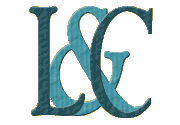|
Service Areas
|
Tax Tips
For GST/HST purposes, the rules of association mirror those in the Income Tax Act. Associated entities share the "small supplier" threshold that is used to determine whether an entity must register for GST/HST. In general, entities under the same control are associated. For example, a company is associated with its 51% shareholder and also with subsidiaries that it controls. (The details for addressing group control are quite complex.) Some people believe that a small supplier is any entity that does not make over $30,000 in taxable supplies in a fiscal year. While that is the basic rule, it is not quite so simple. A taxpayer ceases to be a small supplier, and thus must register for GST/HST, once its (or his or her) total worldwide taxable supplies of goods and services exceed $30,000 in a single calendar quarter or in any four consecutive calendar quarters. When you factor in associated entities, the requirement to register can be triggered by a single taxable supply of a dollar, simply because the supplier and its associates together exceed the $30,000 limit ($50,000 for Public Service Bodies). Thus, for example, if an existing business incorporates a subsidiary, the subsidiary will normally not be a small supplier right from its first supply, and thus will have to charge GST or HST on its very first invoice. When calculating taxable supplies for this test, items that are exempted by the GST legislation, like long-term residential rent, are not included. However, zero rated supplies, like basic foods, exported goods and taxable supplies made outside Canada., are all included. A major problem occurs when the supplier of taxable goods or services does not realize their need to register and collect GST or HST. If they fail to file the required GST/HST returns, the Canada Revenue Agency can assess them at any time in the future, since the assessment deadline of 4 years does not begin until they file their return for any particular reporting period. Even if the tax assessed can be recovered from another entity that can claim input tax credits, penalties and interest that are not deductible for income tax purposes will still apply. TAX TIP OF THE WEEK is provided as a free service to clients and friends of the Tax Specialist Group member firms. The Tax Specialist Group is a national affiliation of firms who specialize in providing tax consulting services to other professionals, businesses and high net worth individuals on Canadian and international tax matters and tax disputes. |




